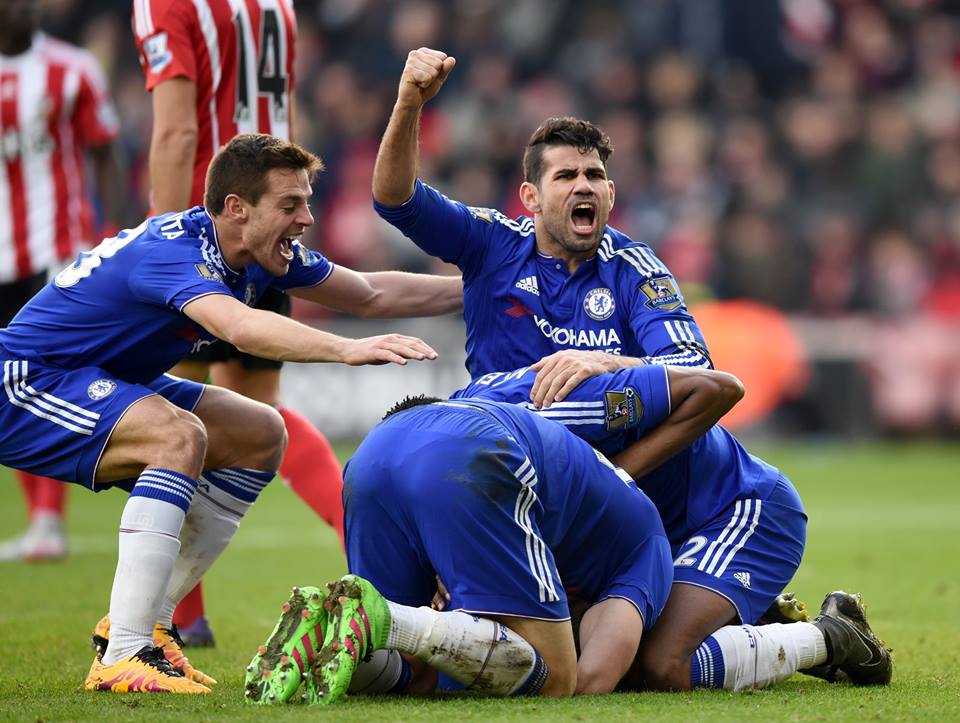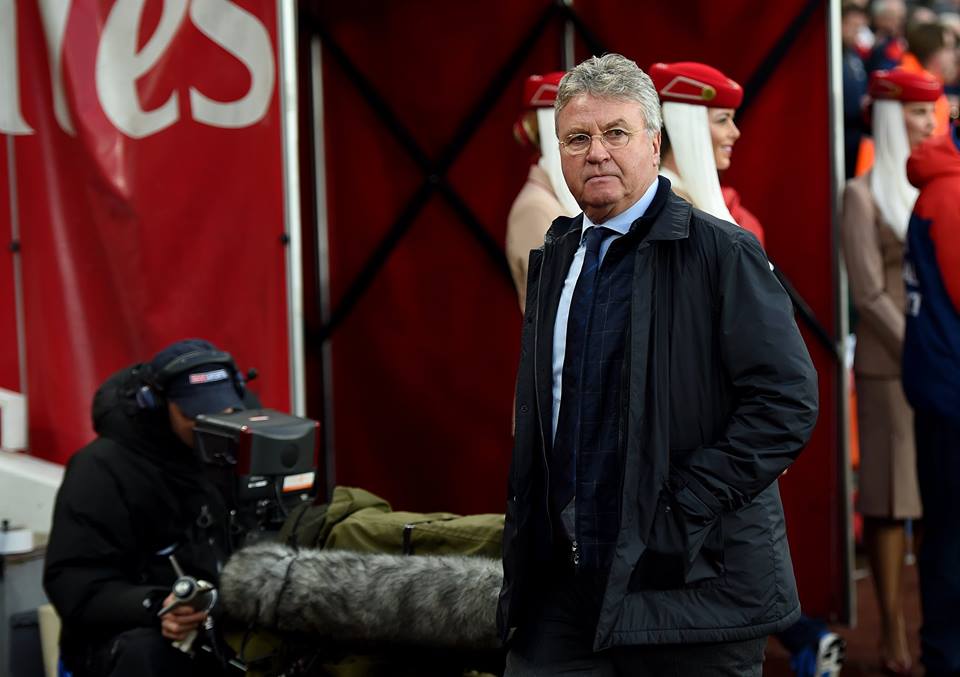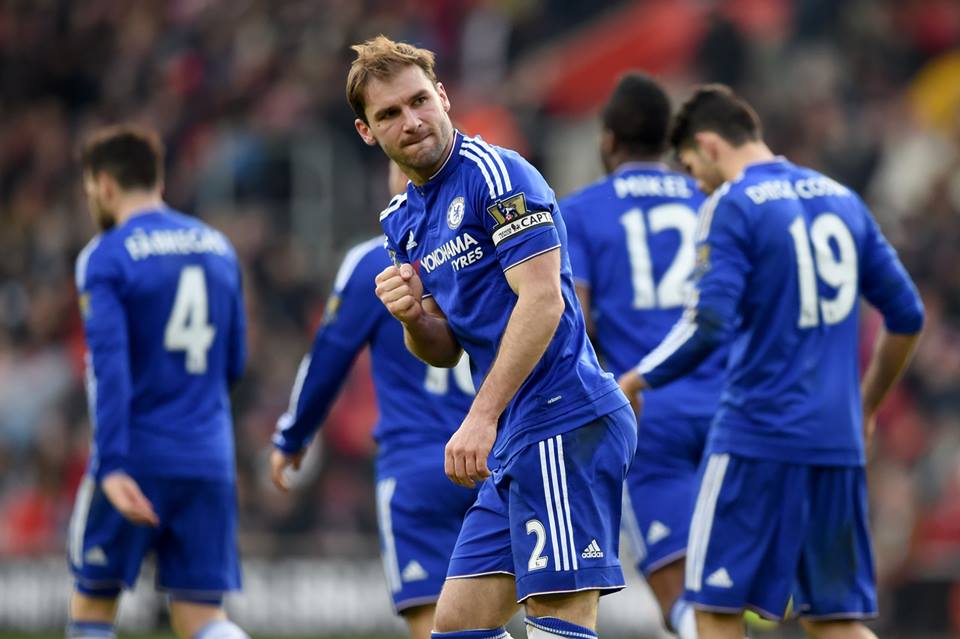Chelsea have improved under Guus Hiddink, but deeper issues remain

Image Courtesy: © Facebook - Chelsea FC
I turned off my alarm, stumbled my way in total darkness to the living room at the ungodly hour of 4 am, fumbled around until I found the remote control, and turned on the TV. In its dull glow, I poured myself a glass of water and crashed on the sofa, still rubbing the sleep from my eyes. My pre-match ritual complete, I lay in hope. I hoped that, in light of the enduring nightmare that was the 2015-16 football season, and my team’s precipitous fall from grace, salvation would come in the form of a successful FA Cup run. Around two hours later, Romelu Lukaku ended Chelsea’s season.
It wasn’t Lukaku’s virtuosity – a goal that, almost as if in slow motion, accentuated the major flaws of each of the four Chelsea players he left in his wake – that brought me crashing back to reality. The final nail in the coffin that contained the Blues’ miserable season was interim manager Guus Hiddink’s comment expressing his relief that the team had moved away from the danger of the Premier League relegation zone.
Those words were enough to snap me out of my reverie – one that had been induced partly by my innate optimism as a football supporter, and partly by Chelsea’s unbeaten domestic run under Hiddink. The Stamford Bridge outfit have improved their results under the 69-year-old, and there has definitely been a revival of sorts under the former Netherlands coach. However, Chelsea’s defeats to PSG in the Champions League and Everton in the FA Cup have brought the club’s deeper problems to the fore again.
Hiddink himself said as much when he talked about the rebuilding job Roman Abramovich and the Chelsea board have on their hands, following his side’s exit from Europe. In a strange way, the Dutchman’s comments in various interviews since his arrival at Stamford Bridge have, on occasion, given the impression that he is an outsider looking in – surveying the smouldering remains of Jose Mourinho’s fiery reign.

Despite that, as also the fact that he has been unequivocal about leaving his post in the summer, Chelsea’s upturn in form prompted many – including Blues midfielder John Obi Mikel – to suggest that Hiddink should stay beyond the summer and take on the job on a permanent basis. Thankfully, Chelsea
Tactically, there has been no discernible change in Chelsea’s way of playing since Hiddink’s arrival. Depending on the opposition, the Blues sit deep and play on the break, press high up and force turnovers of possession, or attempt a combination of the two. Broadly speaking, Mourinho operated in the same way.
There is a remarkable similarity, for instance, between the Blues’ 5-1 thrashing of Newcastle United at Stamford Bridge last month, and the 5-1 win at Swansea last season. Both were perfect examples of playing an intense high-press, forcing mistakes from the opposition, and implementing ruthless attacking transitions after winning the ball high up the pitch.
The formation
As Pep Guardiola so eloquently explains in this YouTube clip, formations are meaningless without also knowing the players in each position. John Obi Mikel has replaced Nemanja Matic in the Chelsea set-up, and that has brought balance to the side. The Nigerian does have his shortcomings, but unlike his Serbian colleague, also has the positional discipline to shield the back four without exposing himself against opposition attacking midfielders.
Mikel’s limitations on the ball are almost a bonus, in the sense that he does not carry the ball forward to the attacking third like Matic tends to, and instead plays it to midfield partner Cesc Fabregas. The 28-year-old keeps it simple and does the basics right. Although that sounds like a cliché, Matic patently does not tick those boxes. The former Benfica man was an attacking midfielder in his younger days, and his alacrity to join in the attack often results in him losing possession – whether because of a failed ‘Hollywood’ pass, or a failed attempt at dribbling past opposition in the final third.
Mourinho’s reticence to use Mikel was strange, and the defensive midfielder’s inclusion in the side has certainly made a difference in terms of the Blues’ defensive record. Having conceded 26 goals in 16 games under the Portuguese (1.6 goals per game), Chelsea
The Blues have also improved in attack, and that has largely been down to the form of striker Diego Costa, and to a lesser extent, midfielder Cesc Fabregas. It is difficult to pinpoint the precise reason for their upturn in form, but it has helped Chelsea hugely. After scoring just 4 goals in 20 appearances under Mourinho, the former Atleti man has found the net 11 times in 16 games under Guus Hiddink.
Fabregas, too, has looked more like the early 2014-15 version of himself. Perhaps his improvement can be put down in part to the presence of Mikel alongside him, which has afforded him more freedom of movement.
(Read about why Roman Abramovich's ruthlessness is necessary for Chelsea)
Hiddink’s personality and the consequent change in atmosphere in the dressing room could also be an explanation. Maybe Diego Costa needed a complementary personality, a ‘yin’ to his ‘yang’, to turn his focus towards scoring rather than picking fights with opposition defenders.
Mikel provided an insight into this early in Hiddink’s reign, when he said, “From day
Chelsea’s revival could also partly be the consequence of, quite simply, luck. The Blues have not been punished as ruthlessly for defensive errors and have got the rub of the green with certain refereeing decisions. Hiddink’s men could very easily have lost to Everton at Stamford Bridge, Manchester United twice, and even Norwich City at Carrow Road, where Cameron Jerome’s profligacy in front of goal played a huge role in Chelsea’s win.
Mourinho often complained early in the season that his team was being punished ruthlessly for every mistake and that his players’ heads were dropping at the first sign of trouble. The ‘unbeaten’ run, even though it has had far too many draws, has undoubtedly improved the team’s confidence. Although still far from perfect, the team certainly does not look as vulnerable in defence or as shell-shocked when things go against them. The come-from-behind win over Southampton is a perfect example of this. A bad defensive error allowed Shane Long to open the scoring, but Chelsea kept pushing, and after getting a deserved equaliser, went on to win the game through Branislav Ivanovic in the dying stages.

An aspect that hasn’t been talked about as much is the players’ fitness. Mourinho admitted that his decision to give the squad extra holidays had not had the desired effect in the early part of the season, but perhaps the improvement in sharpness and fitness in the second half of the season – hard though it is to quantify – is partly a result of that decision. Chelsea
All in all, even though there has been an improvement under Hiddink, the club’s deeper problems remain unsolved. Of course, the Dutchman is not to blame for that, but at the age of 69, he is also not the man to take the club forward. Key changes to personnel in defence and midfield need to be made and deadwood needs to be cleared out, but above all, Chelsea
Hiddink’s relief that the Blues have moved away from the relegation zone was a stark reminder of just how far Chelsea have fallen. This time, there is no quick solution, no shortcut to glory. The Stamford Bridge faithful will need to make their peace with the fact that this rebuilding process will take time.
The rest of the season is all but a write-off, with a top-four finish out of the question. Chelsea can still make the Europa League spots, but that will not be a top priority. Giving their younger players an opportunity to adjust to the demands of Premier League football would be the first indication that the club
With the season over in March, Abramovich and the board can already begin making plans for the future - a future that, one would hope, does not see the return of Guus Hiddink in an interim capacity for the third time.
(Also, take a look at our Managers XI - 2015/16 Premier League Managers XI - Who would make the team?)
